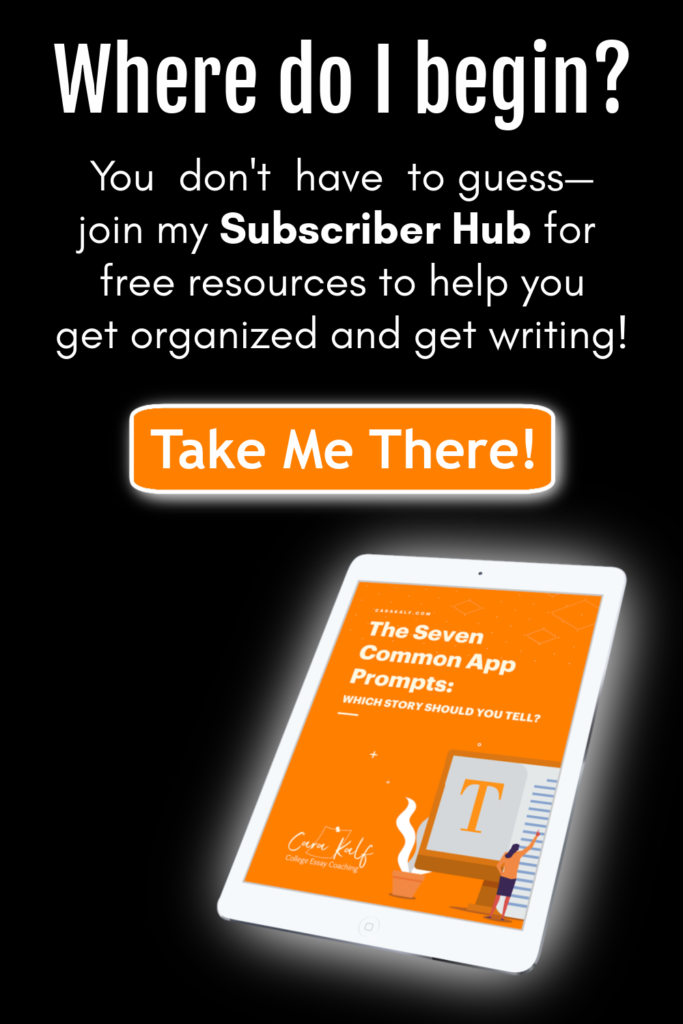Write a College Essay that Matters
Magazine Writing was one of my favorite college classes, but it didn’t start that way. My first assignment was a personal essay. I was stumped. I didn’t go into journalism to write about myself! I eventually wrote a piece about my experience working backstage in Northwestern’s thriving student theater world—what I saw, what I did, what I was responsible for, that sort of thing. I didn’t get a bad grade. Actually, I didn’t get a grade at all. My professor returned it and told me to rewrite it completely. I wrote about what the experience was like—but not about what I was like. It wasn’t enough of a personal essay to fit the assignment. I fretted for weeks, sure I had absolutely nothing to write about, as my professor gave me an extended extension. I told him, “I just don’t know how to write a personal essay!”
Finally, I sat down again and rewrote from scratch. I wrote about why I worked backstage—what I got out of the experience, how I felt when I watched the show from the wings. It was a vulnerable piece, and when I was finally finished, I realized why I hadn’t written it from the start: I had been avoiding it—and not even consciously! Some combination of fear of judgment and an assumption that no one would care about that kind of story had kept me unable to get a word on the page. When I got back the second essay, my professor had written on it, “What do you mean, you don’t know how to write a personal essay?!” That time, I got it.
I think of this story all of the time when students insist they have nothing to say. You feel like you have nothing to say because your internal editor is standing at the doorway between your memories and your conscious mind, causing a bottleneck. Sometimes you don’t even realize you have stories you are rejecting. If you’re still finding yourself staring blankly at your screen as the deadline approaches, it’s likely that you’re guarding—consciously or unconsciously—against one or more stories that don’t feel entirely safe. You don’t have to write those stories. Sometimes they are more personal than is appropriate, or just not something you can adequately address in 650 words. But you shouldn’t dismiss the possibilities without consideration. Sometimes they aren’t that edgy—they just feel like it to you. I hate to leave you without guidance about which stories are pushing the boundaries, but the truth is, both the topic and the presentation matter. I can tell you that in eight years, I’ve only had a few students even think of topics that I felt were too personal or inappropriate to write college essays about.
Sometimes you beat writer’s block by starting with a topic or story that feels safe, as I did at first. This year I had two students come to me with drafts they wrote about the same safe, common interest and why they enjoyed it. Although the students were very different—their essays at first weren’t. These were two seniors who live in different states and have never met. This is the risk you take when you write about something that is not you. Even if your hobby is truly unusual, it’s not inherently interesting. So you do flower arrangements—that’s unusual. But it’s only interesting if there’s a story behind it (learning from your grandmother), or a story coming out of it (starting a small business or doing your cousin’s wedding). If you’ve started with a safe story, and in the middle you’re realizing you really should be writing something totally different—go with it. If a story is calling to you, give it a chance. Trust yourself. Write what matters.
(Photo composite from Pavel Anoshin and Eun-Kwang Bae on Unsplash)


